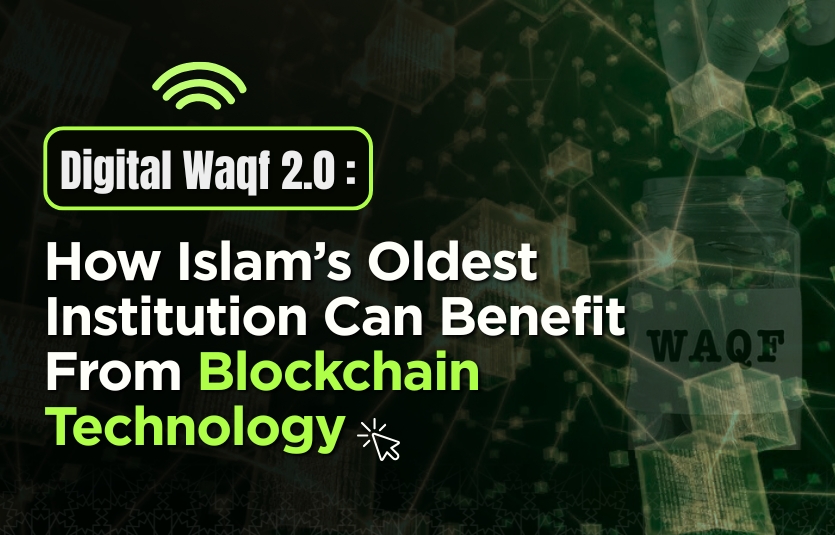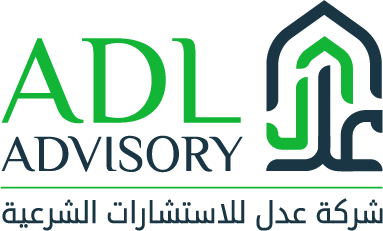
Digital Waqf 2.0
Digital Waqf 2.0: How Islam’s oldest institution can benefit from blockchain technology
The institution of Waqf has been a cornerstone of Islamic Welfare for hundreds of years. In modern times, this institution has been revived through Islamic Finance in several ways, like cash waqf, Sukuk linked Waqf and many more. Blockchain has emerged as a decentralized and transparent ledger technology which is rapidly changing the landscape of the FinTech world. Lets dive in and see how both these tools can be used for the welfare of the Muslim community.
What is Waqf?
Waqf is a charitable endowment held by a trust (Britannica). Waqf comes from the word “Al-Waqf” which means to stop or to hold. From a Shariah point of view, it refers to the act of transferring a property to the ownership of God Almighty, which makes it invulnerable to any disposition and the donating of the usufruct of that property to beneficiaries. (Marifa Islamic banking &Finance: Principles and Practices).
Justification from Quran and Sunnah
Allah says in the Quran, “By no means, shall you attain piety, unless you spend on that which you love; and whatever good you have, Allah knows it well (Surah Ali-Imran 3:92). Likewise, there is a hadith mentioned in Sahih Al-Bukhari, Narrated by Ibn Umer (May Allah be pleased with him): In the lifetime of Allah’s Apostle, Umar gave in charity some of his property which was a garden of date-palms called Thamgh. ‘Umar said, “O Allah’s Apostle! I have some property which I highly prize, and I want to give it to charity.” The Prophet said, “Give it in charity with its land and trees on the condition that the land and trees will neither be sold nor given as a present, nor bequeathed, but the fruits are to be spent in charity.” So ‘Umar gave it in charity, and it was for Allah’s Cause, the emancipation of slaves, for the poor, for guests, for travelers, and for kinsmen. The person acting as its administrator could eat from it reasonably and fairly, and could let a friend of his eat from it provided he had no intention of becoming wealthy by its means” (Sahih al Bukhari, Book 51, Hadith 26)
History of Waqf
The first ever waqf established was after the Hijrah of the Prophet (PBUH). It is thought to be the first mosque in the world which was founded on the principles of Waqf. In the 10th to 15th century, the Nur al-Din bimaristans (place of the sick) located in Damascus in Andalusia was run on Waqf. In the time of the Ottomans (14th-early 20th century) more than half of the empire was held as waqf; which was supervised by the Ministry of Evkaf.
Even in modern times, organizations like Hamdard in South Asia, and Waqaf An-Nur Corporation Berhad in Malaysia are some examples of Waqaf and its utilization.
Digital Technology and Blockchain
Blockchain refers to a decentralized digital ledger that securely stores records across a network of computers in a way that is transparent, immutable, and resistant to tampering. (Investopedia)
In recent times digital Technologies like blockchain, digital fundraising platforms and online databases have emerged as tools to streamline management of waqf assets (NMH, Mohiyadin et al, 2022). This technology can be used for waqf to provide a more significant impact on the social and economic welfare, through the help of technology (Asyari et al, 2024). Through the decentralized digital ledger system in blockchain, waqf donations and asset management activities can be monitored and recorded for the public to access which allows for transparency and accountability (N, Salleh et al, 2023)
Benefits of “Digital Waqf 2.0”
Due to the nature of Blockchain, and its high degree of transparency, Waqf transactions can be safely stored and recorded for future access. This allows for a large pool of assets to be stored across the Muslim world (Laallam et al., 2020). Another important feature of blockchain tech is the ability to automate transactions and enforce criteria through smart contracts which will significantly cut down on administrative expenses. . Furthermore, blockchain has the added benefit of decentralized governance, which would reduce the risk of corruption and enable more engagement from participants (Anwar et al., 2024).
Challenges to Digital Waqf & its Mitigation
Whenever there is an innovation or a new technology that emerges, there will always be some concerns or challenges. One of the main concerns for blockchain is internet access and technological infrastructure. According to a survey done by the International Telecommunications Union, 52% of the world still does not have internet access and lacks the digital expertise for utilizing information technology (Muneeza et al., 2018). Likewise, blockchain tech is fairly young in many developing countries and still requires time to become prevalent (Niforos et al. in Muneeza et al., 2018).
However there are many aspects that can be improved to guarantee a better system for Waqf to flourish. Awareness is paramount in the flourishing of blockchain usage in Waqf. The lack of understanding of the essentials of Blockchain can deter people from understanding its potential. Therefore, a concentrated effort is required to create awareness of its potential (Hasan, 2017). There has also been government interference which has affected the usage of Blockchain. This has allowed for mixed feelings about the technology. Therefore, policy makers must feel comfortable and offer certain regulations, which in reality will better the prosperity of Blockchain and Waqf (Bakar, 2018).
Conclusion
The concept of Waqf has provided Muslims with welfare for many centuries. With the development of Blockchain technology, that concept can flourish and benefit even more. Blockchain can provide transparency and accountability which is necessary to improve customer satisfaction and provide incentive to the stakeholders to engage with the Waqf framework.
References
- Al Quran (3:92)
- Sahih Al Bukhari, (Book 51, hadith 26)
- Britannica : “Waqf”
- Investopedia : “Blockchain”
- Marifa Guide to Islamic Banking and Finance :Principles and Practices.
- Anwar, I. F., Rahayu, S. B. ., Yusoff, Y., Lajin, N. F. M. ., & Atan, A. . (2024). The Sustainability of Cash Waqf Using Blockchain Technology: a Conceptual Study. INTERNATIONAL JOURNAL OF TRENDS IN ACCOUNTING RESEARCH, 5(2), 70-82. https://doi.org/10.54951/ijtar.v5i2.664
- Asyari, A., Hoque, M.E., Susanto, P., Begum, H., Awaluddin, A., Marwan, M. and Mamun, A.A. (2024), “Online cash waqf behavioral intention: the role of knowledge of cash waqf and trust”, Journal of Islamic Marketing, Vol. 15 No. 11, pp. 2864-2890. https://doi.org/10.1108/JIMA-07-2023-0224
- Bakar, M.A. 2018. Concept of Revenue, Expenses and Liabilities in Accounting for Zakat, WAQF and Baitulmal in Malaysia: An Analysis from Shariah Perspective. International Journal of Zakat, 3(4), 1-16
- Hasan, R., Siraj, S.A., Mohamad, M.H.S. 2017. Antecedents and Outcome of WAQF’s Trust in WAQF Institution. Journal of Economic Cooperation & Development, 38(4), 155-179.
- Laallam, A., Kassim, S., Adawiah, ER., Saiti, B. 2020. Towards knowledge based WAQF organizations. In Challenges and Impacts of Religious Endowments on Global Economics and Finance, 100-120, IGI Global.
- Mohaiyadin, Norlaila & Aman, Aini & Palil, Mohd & Said, Suzana. (2022).
- Addressing Accountability And Transparency Challenges In Waqf
- Management Using Blockchain Technology. Journal of Islamic Monetary
- Economics and Finance.
- Muneeza, A., Arshad, N. A., & Arifin, A. T. (2018). The Application of Blockchain Technology in Crowdfunding : Towards Financial Inclusion via Technology. International Journal of Management and Applied Research, 5(2), 82–98. https://doi.org/10.18646/2056.52.18-007
- Salleh, S. Kassim, N. M. Muhammad, S. S. Mohd Yusoff, N. F. Mahadi and K. M. Ariffin, “Application of Blockchain Technology in the Management of Waqf Institutions: Concepts, Challenges and Recommendations,”2023 IEEE International Conference on Computing (ICOCO), Langkawi, Malaysia, 2023, pp. 369-374, doi: 10.1109/ICOCO59262.2023.10397676
- Niforos, M.; Ramachandran, V.; Rehermann, T. (2017), Block Chain: Opportunities for Private Enterprises in Emerging Market. Washington, D.C.: International Finance Corporation, available from: https://openknowledge.worldbank.org/handle/10986/28962 [accessed on 1 Aug 2018].
